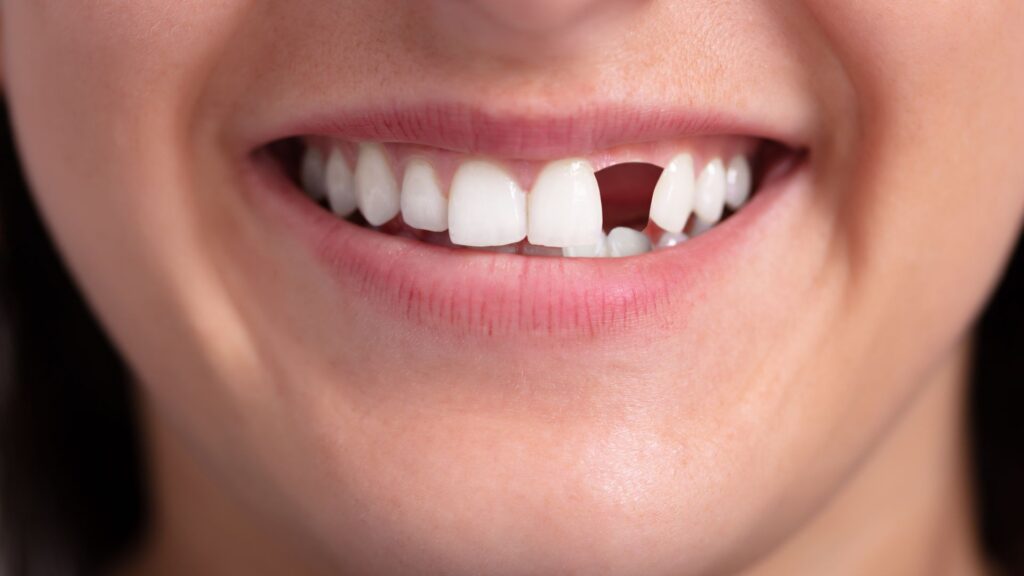Most people think once they get a tooth replacement, especially dental implants, it’s there for life, no questions asked. The truth is more nuanced. Implants are designed to last for decades, but their survival isn’t only about the surgery or the dentist’s skill. It’s about the small, everyday habits you may not even notice. Chewing on ice during a hot day, lighting up a cigarette after dinner, or skipping a flossing session here and there, these choices seem harmless but can quietly cut years off your implant’s life.
This guide highlights five everyday habits that can put your tooth replacement at risk. More importantly, it explains how simple changes can keep implants strong and functional for the long term. If you’re exploring dental implants in Mira Road, or already have them, these insights will help you protect your smile before small mistakes become costly problems.
Chewing on Hard Objects
Many people unknowingly chew on ice, pen caps, or even hard candies, which can cause significant damage. Unlike natural enamel, which has some flexibility, implant crowns are built from ceramic or porcelain fused to metal. These materials are durable but not immune to fracture. Excessive pressure from chewing on hard items may cause cracks in the crown or loosen the implant post.
Studies suggest that repetitive chewing of ice and other hard substances can generate forces far greater than those implants are designed to withstand, increasing the risk of breakage.
To preserve your implants, avoid biting complex objects altogether. If you crave crunch, stick to foods that are firm yet safe, such as apples or carrots, instead of ice or unpopped popcorn kernels.
Smoking and Tobacco Use
Smoking has long been linked with poor oral health, and the same holds for dental implants. The chemicals in tobacco reduce blood flow, slow down healing after implant surgery, and increase the risk of infection. Studies suggest that smokers are significantly more likely to face implant failure compared to non-smokers.
Smokers are two to three times more likely to lose their implants than non-smokers.
Whether it’s cigarettes, cigars, or even chewing tobacco, these habits interfere with the bond between the implant and your jawbone. For the long-term success of tooth replacement, cutting down or quitting tobacco makes a measurable difference.

Poor Oral Hygiene and Skipping Dental Check-ups
Just because an implant is artificial does not mean it is immune to gum disease. Food particles and plaque can still accumulate around implants. Without proper cleaning, this can lead to peri-implantitis, a condition where the gums and bone around the implant become infected.
Skipping brushing or flossing can lead to peri-implantitis, a form of gum disease that can cause bone loss and implant failure.
Daily brushing, flossing, and routine visits to a dental clinic in Mira Road are essential. Professional cleanings help prevent hidden plaque from building up, ensuring your implant remains secure and functional for years.
Teeth Grinding (Bruxism)
Many people grind their teeth unconsciously during sleep. This condition, known as bruxism, places excessive pressure on dental implants. The constant grinding can wear down the crown, loosen the implant screw, or strain the surrounding bone and gum tissue.
If you notice jaw pain, morning headaches, or tooth sensitivity, you may be grinding at night. A custom night guard provided by an implant dentist in Mira Road can protect both your natural teeth and your implants from damage.
Using Teeth as Tools
Opening a packet, tearing plastic, or biting nails may seem convenient, but these habits can compromise your implant. Your teeth are not designed to function as tools, and applying extra force in this way risks fractures and loosening.
Using teeth to open packages or bottles can exert excessive force and risk chipping or loosening the implant.
It only takes one wrong move to damage your tooth replacement, leading to expensive repairs. Keeping scissors or a bottle opener handy is a simple way to avoid this unnecessary risk.
Why Implants Last with Proper Care
Dental implants are widely regarded as one of the most durable forms of tooth replacement. Success rates remain high, with long-term studies showing that 90 to 95 percent of implants last beyond 15 years when patients follow good oral care routines. The combination of strong materials and modern surgical techniques makes implants a reliable solution.
The key lies in consistent care. Patients who follow healthy habits, maintain oral hygiene, avoid smoking, and attend regular dental visits often enjoy decades of use from their implants.
If you are considering tooth replacement in Mira Road, implants may provide the security and confidence you need, provided you are committed to maintaining them.

Practical Aftercare for Healthy Implants
Aftercare is essential but straightforward. To make your implants last longer, follow these steps:
- Brush twice daily with a soft-bristle toothbrush to avoid scratching the implant crown.
- Floss carefully around the implant using floss or interdental brushes designed for implants.
- Use a non-abrasive toothpaste to prevent wear on the crown’s surface.
- Rinse with an antibacterial mouthwash to reduce plaque and bacterial buildup.
- Schedule regular check-ups with an implant dentist in Mira Road for professional cleaning and monitoring.
- Make lifestyle changes such as quitting smoking, avoiding chewing on hard items, and treating teeth grinding with a night guard if needed.
Risks & Protective Measures
| Habit | Potential Impact | Recommended Protective Action |
| Chewing ice or hard objects | Crown damage, implant loosening | Avoid chewing hard items |
| Smoking/Tobacco use | Impaired healing, higher chance of failure (2–3×) | Quit or reduce smoking |
| Poor Oral Hygiene | Peri-implantitis, infection, bone loss | Brush, floss, visit dentist regularly |
| Teeth Grinding (Bruxism) | Increased stress on implant, crown wear/loosening | Use night guard |
| Using Teeth as Tools | Chipping, undue pressure on implant | Use appropriate tools |
FAQs
How long do dental implants last with proper care?
Dental implants can last 15 years or more with regular brushing, flossing, and dental visits. Survival rates exceed 90 percent when patients follow healthy oral habits and avoid damaging activities.
Can smoking really make my implant fail faster?
Yes. Smoking interferes with healing and increases infection risks around implants. Research shows smokers are up to three times more likely to face implant failure compared to non-smokers.
What is peri-implantitis, and how can I prevent it?
Peri-implantitis is a gum infection around implants that leads to bone loss. It is preventable through consistent oral hygiene, routine cleanings, and early professional care if swelling or bleeding occurs.
Is chewing ice harmful to implants?
Yes. Ice and other complex objects create unnecessary pressure that can crack implant crowns or loosen the post. Avoiding these habits significantly lowers the risk of premature implant damage.
What should I do if I grind my teeth?
Consult your dentist about a custom night guard if you grind your teeth. This appliance protects both implants and natural teeth by absorbing grinding pressure during sleep.
Conclusion
Dental implants provide strength, stability, and a natural look, but their longevity depends on your daily choices. Chewing on complex objects, smoking, poor oral hygiene, teeth grinding, and using teeth as tools can shorten their life. By breaking these habits and maintaining good oral care, you give your implants the best chance to last for decades.
If you are considering dental implants in Mira Road, consult a qualified dentist who can guide you through the procedure and provide aftercare advice tailored to your needs. Proper care today ensures your implants remain a confident part of your smile for years to come
Sources & References
- Dental Council of India (DCI) – Regulations on ethical dental practice and professional standards: https://dciindia.gov.in
- Ministry of Health & Family Welfare, Government of India – National Oral Health Programme, preventive and restorative guidelines: https://main.mohfw.gov.in
- World Health Organization (WHO) – Oral health fact sheets and policy guidance on tooth loss and its health impact: https://www.who.int/health-topics/oral-health
- National Institutes of Health (NIH) – Research and clinical data on dental implants, bone loss, and oral rehabilitation: https://www.ncbi.nlm.nih.gov
- Indian Council of Medical Research (ICMR) – Oral health research initiatives and public health insights: https://www.icmr.nic.in






